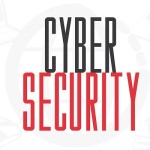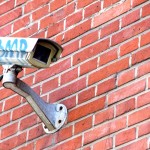Summer Travel & Cyber Security
Whether you are traveling for business or pleasure, cyber security is important and essential. You should always do your best to safeguard your personal data, but business travelers should take extra precaution as both personal and business data may be at risk. Before you leave, be sure to review and apply these smart cyber security tips.
Lock Devices
Most devices (smartphones, laptops, tablets) have a security setting that enables you to lock your device using a PIN number or fingerprint ID. You should enable this on every device. In addition, you should change the PIN numbers you regularly use. Should your devices be temporarily misplaced or forgotten, this will be the first line of defense against a security breach.
Be Cautious Of Public Wi-Fi
If you are traveling abroad, the laws and regulations that govern cyber security are typically not the same as those in the United States. Although free Wi-Fi access can be very appealing, it can be particularly vulnerable to security issues.
Avoid any unencrypted Wi-Fi networks – ask the hotel about its security protocol before connecting. Be extra cautious using Internet cafes and free Wi-Fi hotspots. If you must use them, avoid accessing personal accounts or sensitive data while connected to that network.
Disable Auto-Connect
If your phone has a setting which allows your device to automatically connect to Wi-Fi networks as you pass through them, turn it off before you leave. It can be convenient when you are at home, but it is not something you should allow while traveling.
Disable Bluetooth Connectivity
Along with your Wi-Fi connectivity, you should also disable Bluetooth connectivity. Bluetooth signals can come from anywhere, and if left on, nearby assailants can connect to your phone and potentially hack into your device.
Minimize Location Sharing
When traveling, it may be tempting to share your experiences in real time on social networks. The problem with this is that it creates a security threat at home. Knowing where you are helps criminals determine that you’re not in your hotel room or at home, leaving these areas vulnerable to physical intrusion. Limit what you post online or save it until after you have returned home to minimize potential threats.
Install Anti-Virus Protection
One of the easiest and most effective ways to keep personal and company information secure while traveling is to utilize anti-virus protection. Choose a trusted brand of security and be sure to regularly update this software as new versions become available.
Update Operating Systems
Much like anti-virus software, your operating system should be kept up-to-date. This also applies to apps on your phone, especially those which you use regularly to conduct financial or personal business.
Update Passwords
Password management is ever important, so if you are going to travel, be sure to change all of the passwords you regularly use. If you must create a PIN for a safe or security box in a hotel room, make sure it’s unique and not something you commonly use. Don’t skimp on password creation either. Take the time to create something that will keep a criminal out of your personal property. Once you return home, you can changes all the passwords back.
In addition to these tips, you should also review the laws and regulations governing cyber security in each country you plan to visit. Be aware of your surroundings, networks, and devices to reduce the risk of cyber threats. Share your own cyber security tips with us on Facebook, Twitter, LinkedIn, and Pinterest.
For a comprehensive selection of quality IP and HD security cameras to suit your budget and needs, please visit SecurityCamExpert.com. For questions or to request a free quote, please call 888-203-6294.
Cyber Security Awareness For Consumers
Cyber security is extremely important, especially in this day and age, which is why October is recognized as National Cyber Security Awareness Month. Without the proper safeguards in place, your identity and personal data are at risk. Here are some cyber security tips to help raise awareness and protect you from cybercriminals.
Watch What You Share
Cybercriminals are using more advanced tactics to gain information. Attacks are designed based on extensive research of the information you share online. Cybercriminals scour social media for various personal details, from workplace and job titles to friends and activities. They use this information to manipulate unsuspecting victims, a tactic known as social engineering.
Examine Your URLs
Pay close attention to URLs. As mentioned, criminals are using smarter approaches. They use branded emails with logos and fonts that look like legitimate retailers to get you to click on malicious links.
To safeguard against these scams and avoid being redirected to a fake site, always type the retailer’s address into your browser. And always make sure the site begins with https:// (as opposed to http://). The “s” stands for secure and makes a big difference in your online safety.
Secure Payment Methods
Whenever you enter your credit or debit card details into an online form, you are susceptible to interception from cyber criminals. Dodge these risks by setting up a dedicated online shopping account with strict credit and overdraft limits, and with only enough money to buy what you need.
Listen To Your Suspicions
Trust your instinct. If it seems suspicious, don’t use it. Make sure you are keeping track of the retailers you are expecting shipments from. If you receive an email that contains tracking information from a courier service or retailer you have not used, do not open it. It will likely contain a tracking URL which is a malicious link in disguise. And the same goes for attachments as these could contain malicious code. To err on the safe side, manually type the courier service website into your browser.
Fallen Victim? Take Immediate Action
If you think you may have fallen victim to cyber crime, act fast!
- Report It To The Police
Many cases go unreported every year, lending to the success rate of these cyber crimes. By reporting it to police, you can aid cyber criminal investigations help to shut down these operations for good.
- Report It To Your Bank
As soon as you notice unusual account behavior or suspect something may be wrong, contact your bank and have your card cancelled immediately. In some cases, depending on the circumstance, you may be able to reverse the fraudulent charges and recover your money.
- Report It To The Business
The business you thought you were buying from would benefit from knowing they are being impersonated online as you may not be the only victim. The business has the resources to track down the perpetrators and is likely familiar with the processes of getting suspicious websites blacklisted or shut down.
- Do Not Negotiate
Ransomware attacks usually involve locking you out of your PC and asking for a ransom (in untraceable currencies like Bitcoin) to regain control. If you give in and pay the ransom, you will be identified as a soft target and they will be back.
Do you have any cyber security tips to share? Connect with us on Facebook, Google+, Twitter, LinkedIn, and Pinterest.
For your security cameras and CCTV video surveillance needs, please visit SecurityCamExpert.com today! Call 888-203-6294 to request a free quote or schedule a site survey.
Safeguard Your Security Cameras
These days, most of our devices are connected thanks to the Internet of Things. While this can make things more convenient for us, it can also leave us vulnerable to hackers.
There have been many public stories about cyber attacks and spying, from hacked baby monitors to internet outages. And while we may never see an end to cyber criminals, this proves that we can never be too cautious.
These unfortunate hacks can occur from unsecure Wi-Fi connections, open devices (no passwords), or malware attacks. Luckily, there are ways to combat attacks and minimize our risks.
Heed these cyber security tips that may apply to security cameras, webcams, as well as baby and pet monitors.
- Keep Your Internet Private
Employ a full-service security suite for your internet and keep it up to date. Use a strong, unique password and encryption to protect your network.
- Create Secure Passwords
Always change the default password that comes with your wireless networks and any of your devices. When choosing a password, remember to incorporate numbers, capital letters, and, when allowed, multiple punctuation marks. You should also try to use 12 digits, and avoid names, places, or anything that can easily be guessed. To ensure you’ve created strong and secure passwords, use a password checker.
- Keep Software Up-To-Date
As stated previously, keep all your devices and software updated as these help to patch any known or found vulnerabilities that allow hackers to gain access. Although this simple step can easily be overlooked, it is important to stay on top of these updates.
- Cover Cameras When They Are Not In Use
If your camera indicator light goes on without your permission, you can assume that your computer has been compromised. However, just because the light is off, you cannot assume that your camera is safe. Researchers have found that hackers can infiltrate and turn on webcams without activating the indicator light.
To err on the side of caution, keep your cameras covered. There are different types of patches, stickers, devices, and other products on the market that you can use. However, for an immediate fix, masking tape will suffice.
- Don’t Click That Suspicious Link!
If there is any uncertainty, do not click the link. Only download attachments or click on links from people you know and trust. If you were not expecting a message or attachment from a trusted person, be sure to check with them before opening or downloading anything.
- Avoid Using Unsecured Wi-Fi
Public Wi-Fi networks are prone to hackers so avoid them when you can.
- Check Your Camera Log
If your security system permits (most do), check the IP addresses that have accessed your cameras. If you find any suspicious IP addresses on your log, be sure to change your access codes right away and notify your security company.
- Manage Cameras Settings
Network connected security cameras allow you to remotely monitor your cameras via an app or a website. If you do not need this feature, turn it off.
- Consider A Separate Network
It may be beneficial to have one network for your phone and computers and another network solely dedicated to your security systems and other monitors.
Being an educated consumer will minimize your risk of becoming a victim. These security precautions promote safe use of personal technology and can go a long way for your cyber security. Connect with us on Facebook, Google+, Twitter, LinkedIn, and Pinterest to share your own cyber security tips.
Need quality security cameras and CCTV surveillance equipment? Look no further than SecurityCamExpert.com! Call 888-203-6294 to schedule a free* site survey, request a quote, or inquire about our installation services.
Protect Your Surveillance System
Installing a surveillance system in your home or business can provide you with a sense of security. However, if you do not properly secure your system, cyber criminals can gain access to your video feeds.
Aside from an unnerving invasion of privacy, unauthorized access to your surveillance video can help criminals study the area, identify where important property is located, figure out traffic patterns, sabotage systems, deny access to feeds, and much more.
Because IP security camera systems connect to LAN networks, extra precautions are necessary to safeguard your system from attacks. Breaches are usually due to human error, negligence, and misconfigurations, and can often be prevented. The following are common vulnerabilities and ways to protect your surveillance system.
Weak Passwords
Default usernames and passwords are common with most IP based security cameras. They are used to set up your system and accounts for remote access. Too often, people fail to change these passwords, or choose simple passwords, making it easy for strangers to access feeds.
Be sure to set strong passwords, use good password management or user certificates in lieu of passwords. You may want to consider changing your password periodically as well.
Poor Deployment
Avoid enabling unused services as it can leave your system vulnerable to attacks. For example, cyber criminals could install malicious applications and scripts using file transfer protocol (FTP) or an app platform from an untrusted developer.
Minimize your risk by disabling any unused services and installing only trusted apps.
Unclear Roles
Sometimes organizations fail to define who has access to different aspects of the surveillance system, possibly leading to confusion and employees with unnecessary access. For example, it may be unclear as to who is responsible for reviewing security measures to ensure proper protocol is being followed.
For IT departments, it is recommended to only allow users access to the resources they need to perform their job.
Software Bugs
Bugs and flaws in software codes can put your devices at risk. Luckily, you can do your part to prevent this.
Always keep your cameras, equipment, and software up-to-date with the latest firmware to ensure that bugs will not pose a threat. Vendors often post public common vulnerabilities and exposure reports which provide solutions for users.
Physical Installation Problems
Whether it is your cameras, wiring, or other infrastructure, poor installation can leave your system at risk.
Cameras should be installed out of reach to avoid any possible tampering or vandalism, but at a proper angle to view people and objects clearly.
Poor Physical Protection Of Equipment (Cabling, Servers, Gear)
If your cabling, server, or other surveillance equipment is not properly protected, your system is at risk for poor, intermittent performance. A small kink or damage to a cable can interfere with signal, causing disruption in your feed or even power failure.
Appropriate housing to protect your equipment from severe weather or extreme heat is available and is recommended for use if you are in an area susceptible to these conditions.
Poor Maintenance
Routine maintenance is ever important to ensure that your system is and will continue to function properly.
A preventative maintenance program should include a checklist of issues to look for in order to avoid small issues that can turn into big problems (ex. damaged/loose cameras and equipment, exposed, loose, or damaged cabling, dirt/moisture on camera lenses). This will allow the owner to become accustomed to the system and more aware when something seems different or wrong (ex. possible signs of tampering).
Flaws In Standard Network Protocols
Most network surveillance systems use standard network protocols (ex. FTP, TCP/IP), however, weaknesses or flaws in these protocols can expose surveillance data to attacks.
For video streams sent over the network, the latest advanced encryption methods should be used.
Failure To Align Hardware/Software On The Network With IT Policy
If your hardware or software does not meet your IT organization’s network security policy, there will be security issues. For example, third-party software or apps are often poorly supported or lack security patches which make them vulnerable to security breaches. Thus, your IT department will not be happy.
Enforcing a strong IT policy is imperative for any business.
How do you protect your surveillance system from cyber and physical attacks? Share your best tips with your peers on Facebook, Google+, Twitter, LinkedIn, and Pinterest!
Find a great selection of security cameras including IP surveillance cameras, CCTV security camera packages, and more at SecurityCamExpert.com. For more information, please call 1-888-203-6294.


